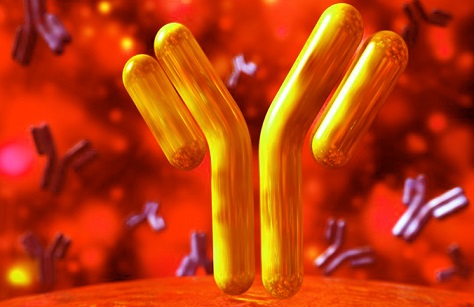Nikhil Prasad Fact checked by:Thailand Medical News Team Dec 16, 2024 3 months, 4 weeks, 1 hour, 35 minutes ago
Medical News: The COVID-19 pandemic has affected millions worldwide, with the virus and its variants continuing to challenge medical professionals. Researchers Emi E. Nakayama and Tatsuo Shioda from the Department of Viral Infections at Osaka University’s Research Institute for Microbial Diseases in Japan, have delved into how certain immune responses, specifically anti-nucleocapsid antibodies, could contribute to severe outcomes in COVID-19 reinfections and prolonged symptoms known as post-acute sequelae of COVID-19 (PASC).
 Detrimental Effects of Anti-Nucleocapsid Antibodies in COVID-19
Detrimental Effects of Anti-Nucleocapsid Antibodies in COVID-19
This
Medical News report explores their study on the potential negative effects of these antibodies, which are not as well-known as the spike protein antibodies commonly discussed in vaccination and immunity contexts. Their findings indicate that these antibodies might exacerbate inflammation and lead to worse health outcomes in some cases. Understanding these mechanisms can shed light on why certain individuals experience severe symptoms or prolonged complications, even after mild infections.
Antibodies and Their Role in Reinfections
Antibodies are proteins produced by the immune system to fight infections. While generally protective, some antibodies may have unintended effects. For example, antibody-dependent enhancement (ADE) occurs when antibodies enhance rather than inhibit viral infection. ADE has been observed in other viral infections, such as dengue, and researchers are investigating its role in COVID-19.
For SARS-CoV-2, three types of ADE have been identified:
-Fc receptor-dependent ADE of infection caused by anti-spike antibodies.
-Fc receptor-independent ADE of infection due to conformational changes in spike proteins.
-Fc receptor-dependent ADE of cytokine production triggered by anti-nucleocapsid antibodies.
The Osaka University team focused on the last mechanism, exploring how anti-nucleocapsid antibodies might contribute to severe inflammation during reinfections and PASC.
Why Nucleocapsid Antibodies Matter
The nucleocapsid (N) protein of SARS-CoV-2 plays a vital role in the virus’s structure, encapsulating its genetic material. Studies have shown that the N protein also impacts the body’s immune responses. Unlike the spike (S) protein, which has been the primary target of vaccines, the N protein is known to induce high levels of pro-inflammatory cytokines such as IL-6, IL-12, and TNF-α. These inflammatory molecules are associated with severe COVID-19 symptoms, including organ damage and prolonged recovery.
When antibodies target the N protein, their interaction can amplify the inflammatory response. The study highlighted that anti-nucleocapsid antibodies could exacerbate the release of cytokines by macrophages, immune cells involved in the body’s inflammatory response. This mechanism may explain why some individuals develop severe pneumonia or multi-organ failure during reinfection, even if their first infection was mild.
The Link to Post-Acute Sequelae of COVID-19
Post-acute sequelae of COVID-19, or long COVID, refers to a range of symptoms persisting for months after the acute phase of the disease. These symptoms include brain fog, fatigue, and shortness of breath. The World Health Organization defines PASC as the continuation or appearance of new symptoms three months post-infection, lasting at least two months with no other identifiable cause.
The study suggested that anti-nucleocapsid antibodies might contribute to PASC by maintaining a state of chronic inflammation. Evidence showed that higher levels of these antibodies correlated with increased production of inflammatory cytokines. These findings align with observations of elevated cytokine levels in long COVID patients, further implicating anti-nucleocapsid antibodies in the prolonged health impacts of SARS-CoV-2 infections.
Detailed Study Findings
The researchers’ experiments revealed critical insights:
Patient samples from severe COVID-19 cases showed higher levels of anti-nucleocapsid antibodies and a greater ability to induce cytokine production compared to samples from mild cases.
The presence of the N protein was sufficient to trigger significant inflammatory responses when combined with anti-nucleocapsid antibodies.
These effects were particularly pronounced in macrophages, which play a key role in the immune system’s inflammatory response.
Additionally, the study noted that individuals with pre-existing anti-nucleocapsid antibodies - possibly from prior coronavirus infections - might face heightened risks of severe outcomes during SARS-CoV-2 reinfection. The researchers hypothesized that these antibodies could contribute to antibody-dependent cellular cytotoxicity, leading to further tissue damage.
Broader Implications for Vaccination and Immunity
The findings raise questions about the role of anti-nucleocapsid antibodies in vaccine development. While most COVID-19 vaccines target the spike protein, some whole-virus vaccines include the nucleocapsid protein. The study’s insights suggest caution in using the N protein as a vaccine antigen, as it might trigger adverse inflammatory responses in certain individuals.
Furthermore, the study highlighted the importance of hybrid immunity - protection gained from both vaccination and prior infection - in mitigating severe outcomes. However, the persistence of high levels of anti-nucleocapsid antibodies after multiple infections underscores the need for continued research into their long-term effects.
Conclusions
The study by Nakayama and Shioda provides valuable insights into the complex immune dynamics of COVID-19. Their work emphasizes the potential risks associated with anti-nucleocapsid antibodies, particularly in the context of reinfections and PASC. While these antibodies are part of the body’s natural response to infection, their role in exacerbating inflammation highlights the need for tailored approaches to managing and preventing severe COVID-19 outcomes.
Understanding these mechanisms can help refine treatment strategies, improve vaccine design, and support individuals struggling with long-term complications. Future research should focus on developing interventions that mitigate the detrimental effects of anti-nucleocapsid antibodies while preserving their protective benefits.
The study findings were published in the peer-reviewed journal Pathogens.
https://www.mdpi.com/2076-0817/13/12/1109
For the latest COVID-19 News, keep on logging to Thailand
Medical News.
Read Also:
https://www.thailandmedical.news/news/sars-cov-2-nucleocapsid-protein-found-to-worsen-chronic-pain-in-those-exposed-to-covid-19
https://www.thailandmedical.news/news/covid-19-news-study-finds-that-sars-cov-2-nucleocapsid-protein-accumulates-in-renal-tubular-epithelium-of-post-covid-19-patients,-possibility-causing-
https://www.thailandmedical.news/news/breaking-covid-19-news-study-shows-that-sars-cov-2-nucleocapsid-protein-has-dna-melting-and-strand-annealing-properties
https://www.thailandmedical.news/articles/coronavirus
Follow Us on:
https://x.com/ThailandMedicaX
https://bsky.app/profile/thailandmedical.bsky.social
https://www.facebook.com/ThailandMedicalNews
https://gettr.com/user/thailandmedicalnews
https://www.tribel.com/thailandmedical/wall
